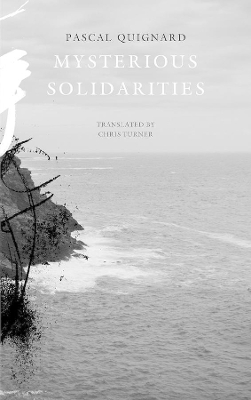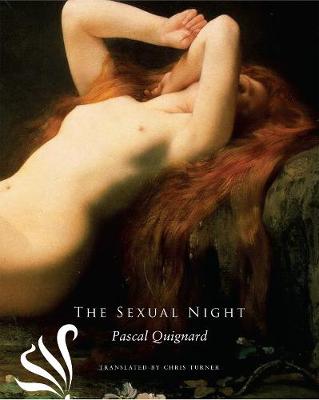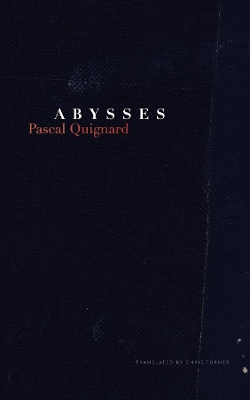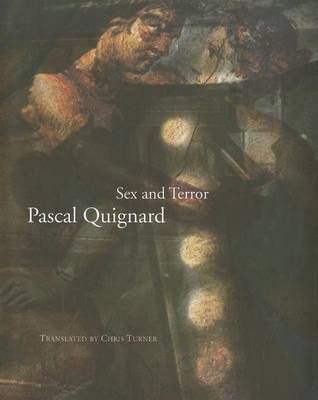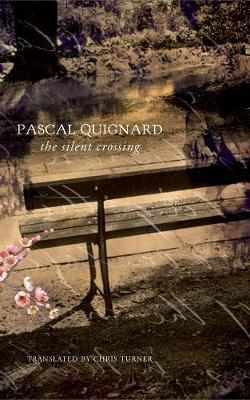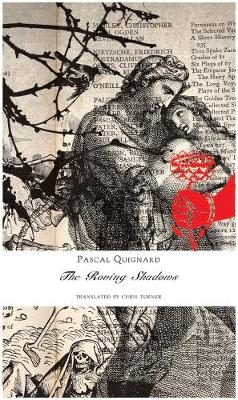The French List - (Seagull titles CHUP)
7 total works
When translator Claire Methuen travels back to her hometown of Dinard for a family wedding, she runs into her old piano teacher Madame Ladon. After befriending the ageing woman, Methuen begins to toy with the idea of a permanent return to live in Brittany. She becomes increasingly obsessed by her childhood sweetheart, Simon Quelen, who, now married and a father, still lives in a village further down the coast where he is the local pharmacist and mayor. Having moved into a farmhouse, she soon spends her days walking the heathland above the cliffs and spying on him as he sails in the bay. As she walks, she is at one with the land of her childhood and youth, “her skull emptying into the landscape.” And when her younger brother Paul comes to join her there, the web of solidarities is further enriched.
This is a tale of dramatic episodes, told through intermingling voices and the atmospherics of the austere Breton landscape. Ultimately, it is a story of obsessional love and of a parallel sibling bond that is equally strong.
This is a tale of dramatic episodes, told through intermingling voices and the atmospherics of the austere Breton landscape. Ultimately, it is a story of obsessional love and of a parallel sibling bond that is equally strong.
Musician Ann Hidden suspects her partner, Thomas, isn't telling her everything. So one dark night, she secretly follows him to an unfamiliar house in the Paris suburbs, where he disappears inside with an unknown woman. But before she can even begin to process what looks like a betrayal, she gets another surprise an old schoolmate, Georges Roehlinger, appears, berating her for spying the from the bushes. With Georges's help, Ann takes radical action: while Thomas is away, she resolves to secretly sell their shared house and get rid of all the physical manifestations of their sixteen years together. Thomas returns to find her gone, the locks changed, and his few possessions packed up and sent to his office. Ann, meanwhile, has fled the country and started a new, hidden life. But our past is never that easy to escape, and Ann's secrets eventually seek her out.
In The Sexual Night, renowned French writer and critic Pascal Quignard meditates on a remarkable collection of illustrations of sexual imagery. He moves from the annals of global art to ancient and modern, from Bosch and Durer to Rembrandt and Tintoretto, from Caspar David Friedrich and Caravaggio to Bacon and Jean Rustin. The meditations are wonderfully woven together, presenting a reflection on the sexual image that psychoanalysis calls "the primal scene" - a concept introduced by Freud, as the first sexual scene witnessed by a child; a scene that is unexplained, unforgettable, and ultimately haunting. Throughout the course of twenty-seven chapters that draw on the mythological and artistic resources of Western and Far Eastern culture - including the tragic love of Dido and Aeneas, the scandalous figure of Mary Magdalene; Lascaux and Golgotha; voyeurism and melancholy; Saint Augustine and Freud - the book is a disquisition on vision, temporality, generation, and creation in all its forms.
Forty-eight brilliant and sensual color images accompany the text, as Quignard questions the origin of our being and explains the unexplainable, while noted translator Chris Turner lends a crisp voice to the entire collection.
Forty-eight brilliant and sensual color images accompany the text, as Quignard questions the origin of our being and explains the unexplainable, while noted translator Chris Turner lends a crisp voice to the entire collection.
Pascal Quignard is an enigmatic author whose writings rove with great poise across the worlds of literary and artistic endeavour, classical and modern, across folk tale, myth and legend, and yet encapsulate moments of intense present experience, evoking with just a word or a phrase the sense of each moment's suffusion by an enormous cosmic past. Quignard's human beings are troubled, questing souls, fascinated always by the mystery of what preceded them and conceived them - in both the broadest and the narrowest possible senses. Abysses is part of Quignard's 'Last Kingdom' series, which the author himself has described as something 'strange'. It consists, he says, 'neither of philosophical argumentation, nor short learned essays, nor novelistic narration', but comes, rather, from a phase of his work in which the very concept of genre has been dropped or, perhaps more accurately, allowed to fall away. The aim is for an overarching form of thinking - 'an entirely modern vision of the world, an entirely secular vision of the world, an entirely abnormal vision of the world.'
As in the previous volumes in this series published by Seagull, Roving Shadows and The Silent Crossing, the text is a rich mix of anecdote and reflection, of aphorism and quotation, of enigmatic glimpses of the present and confident, pointed borrowings from the past - particularly the European classical past in which the author is so much at home. But when Quignard raids the murkier corners of the human record, he does so not as a historian but as an antiquarian. He is not someone interested in the world for its prim and proper historical narratives (after all, as he points out, 'In the USSR, for example, in the middle of last century, the past was completely unpredictable. For fifty years what had happened in the past changed from one day to the next.'). He is in pursuit, rather, of those stories which repeat and echo across time, stories which, if not literally timeless, dance to a rhythm that we do not ordinarily contemplate, a rhythm that channels a force which seems at times to exceed our everyday conceptions of the transcendent by many orders of magnitude.
As in the previous volumes in this series published by Seagull, Roving Shadows and The Silent Crossing, the text is a rich mix of anecdote and reflection, of aphorism and quotation, of enigmatic glimpses of the present and confident, pointed borrowings from the past - particularly the European classical past in which the author is so much at home. But when Quignard raids the murkier corners of the human record, he does so not as a historian but as an antiquarian. He is not someone interested in the world for its prim and proper historical narratives (after all, as he points out, 'In the USSR, for example, in the middle of last century, the past was completely unpredictable. For fifty years what had happened in the past changed from one day to the next.'). He is in pursuit, rather, of those stories which repeat and echo across time, stories which, if not literally timeless, dance to a rhythm that we do not ordinarily contemplate, a rhythm that channels a force which seems at times to exceed our everyday conceptions of the transcendent by many orders of magnitude.
The fascinus, or phallus, was at the heart of classical Roman art and life. No god was more represented in ancient Rome than the phallic deity Priapus, and the fescennine verses, one of the earliest forms of Roman poetry, accompanied the celebrations of Priapus, the harvest, and fertility. But with this emphasis on virility also came an emphasis on power and ideas of possession and protection. In "Sex and Terror", Pascal Quignard looks closely at this delicate interplay of celebration and terror. In startling and original readings of myths, satires, memoirs, and works of ancient philosophy and visual art, Quignard locates moments of both playful, aesthetic commemoration and outward cruelty. Through these examples, he describes a colossal cultural shift within Western civilization that occurred two millennia ago, as Augustus shaped the Roman world into an empire and the joyous, precise eroticism of the Greeks turned into a terror-stricken melancholy. The details of this revolution in thinking are revealed through Quignard's astute analysis of classical literary sources and Roman art.
This powerful transformation from celebration to fear is a change whose consequences, Quignard argues, we are still dealing with today, making "Sex and Terror" an intriguing reconsideration of ancient Rome that transcends its history.
This powerful transformation from celebration to fear is a change whose consequences, Quignard argues, we are still dealing with today, making "Sex and Terror" an intriguing reconsideration of ancient Rome that transcends its history.
Aprolific essayist, novelist, translator, and philosopher, and a critic of rare elegance, Pascal Quignard returns anew to the major questions of existence in "The Silent Crossing", a haunting homage to life and liberty, to society and solitude, and to the binding and unbinding that constitute the weft of our lives. Drawing on materials from across many cultures, Quignard makes an effort to establish shared human values as the breeding ground for a modern Enlightenment. Considering atheism as a spiritual liberation, suicide as a free act, and the rejection of society as a free choice, the author explores philosophical themes that have run through human civilizations-most often as heresies-from our earliest days. In his search for freedom, Quignard questions the binding dependency of religion, querying how, in a world where all forms of society presuppose that someone (or some collective) is looking over our shoulders, we can be free. These reflections, he implies, are the essential spiritual exercise for our times. Few voices in contemporary French literature are more distinct than that of Quignard.
By reading this fragmentary, episodic assemblage of intimate experiences and borrowed tales, we open up a space of liberty, creating for the reader space for meditation and, perhaps, liberation.
By reading this fragmentary, episodic assemblage of intimate experiences and borrowed tales, we open up a space of liberty, creating for the reader space for meditation and, perhaps, liberation.
There are few if any voices more distinct in contemporary French literature than that of Pascal Quignard, a prolific writer of rare erudition and elegance. Essayist, critic, translator, novelist, and musician, Quignard attempts here an ambitious amalgam of his many artistic styles in a fragmentary work that defies the idea of genre. And his daring was rewarded in 2002 when "The Roving Shadows" became the first non-novel in more than sixty years to win the Prix Goncourt, France's most prestigious literary award. This first book in Quignard's "Last Kingdom" series, "The Roving Shadows" can be read as a long meditation on reading and writing that strives to situate these otherwise innocuous activities in a profound relationship to sex and death. Writing and reading can in fact be linked to our animal natures and artistic strivings, to primal forces and culturally persistent fascinations. With dexterity and inventiveness, Quignard weaves together historical anecdotes, folktales from the East and West, fragments of myth, and speculative historical reconstructions.
The whole, written in a musical style not far removed from that of Couperin, whose piano composition "Les Ombres" errantes lends the book its title, coheres into a work of literature that reverberates in the psyche long after one has laid it down. "The Roving Shadows" is a rare and wondrous tour de force that cements Quignard's reputation in contemporary world literature. Available now for the first time in English, this boldly adventurous work will find a new and welcoming audience.
The whole, written in a musical style not far removed from that of Couperin, whose piano composition "Les Ombres" errantes lends the book its title, coheres into a work of literature that reverberates in the psyche long after one has laid it down. "The Roving Shadows" is a rare and wondrous tour de force that cements Quignard's reputation in contemporary world literature. Available now for the first time in English, this boldly adventurous work will find a new and welcoming audience.
